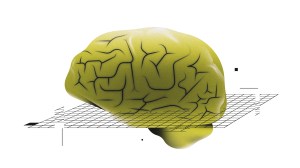In this series
We are, I fear, entering a human intelligence drought even as artificial intelligence is beginning to blossom. And this is not a baseless fear. According to a long-term study of teenagers’ and adults’ reading and numerical skills, both have been declining since 2012.
A Financial Times article that covered the study noted that 18-year-olds self-reported a marked increase in “difficulty thinking or concentrating” and “trouble learning new things” over the same time period.
These startling trends began before the COVID-19 lockdowns, which certainly had an additional adverse effect on students who were forced to switch to virtual classrooms. The first iPhone was launched in 2007, a few years before these trends started to appear in the data. It’s possible this is just a correlation, but given our real-world experience with smartphones, I think most of us would not be surprised that they are making us less able to concentrate, less able to read books or understand numbers—simply, dumber.
The Oxford English Dictionary defines intelligence as “the faculty of understanding.” To elaborate, I think intelligence refers to our ability to reason and understand information and experiences. Some of these experiences will be irreducible to data, like our feelings of love or beauty or injustice—things to which you can’t assign a number value.
Our intelligence is our holistic way of comprehending, interpreting, and reasoning through the information and experiences we receive and have. It is part of what separates us from animals and machines—we can think about ourselves thinking.
There is a reflexivity to our intelligence that is lacking in other creatures or creations. A machine, even an advanced AI model, cannot contemplate itself in the act of thinking. It can only process more information, like analyzing its performance or finding errors.
But I can tell you what it’s like for me to think about myself thinking about writing this article. And in fact, that quality of reflective intelligence is important to the human experience. It’s part of what gives our inner worlds texture and richness. It’s probably not a coincidence that those inner worlds are also currently under threat by the same technological forces that are making us dumber.
Intelligence is also more than mimicry. It’s true that, given enough data and processing power, AI systems will be able to generate content that appears to capture profound human experiences like love, beauty, or injustice.
You’ll be able to ask ChatGPT for a love poem for your valentine or an explanation of a great work of visual art, and the result will be a reasonable mimicry of real human experience, because it has processed billions of pieces of data and trained itself on others’ love poems and art. But that is not the same as having intelligence, as comprehending and understanding love or art. It’s the difference between knowing that a rose is used as a symbol for love and knowing what love feels like.
Understood as a unique human gift, intelligence demands a great deal of us. First, it compels us to humility. Any time an opportunity to comprehend information or an experience comes before us and we choose a posture of superiority or seclusion, we fail to exercise the full gift of intelligence God has given us. It is only in humility that we can accept a reality unfiltered by our prejudices and sins so that we can understand it in light of God’s revelation.
How you will interpret information or an experience using your intelligence is largely determined by a posture of humility or pride—like a book that confronts your assumptions about politics or a walk in the park that confronts you with the beauty of God’s creation. Pride shuts down our intelligence by defaulting to our prior assumptions and biases. Humility remains open to revelation and possibility, to correction and wisdom, engaging with intelligence in a process of understanding.
Second, we have a duty to exercise our intelligence by reading, reasoning, and practicing the virtue of temperance with our digital devices. Whether or not the data charted in the Financial Times article marks a direct causation between smartphones and a decline in intelligence in America, I think most of us have seen this decline in ourselves or those we love who are addicted to smartphones.
We don’t need a study to tell us what common sense and personal experience show: Spending hours every day on digital devices that train our attention to adapt to 30-second videos harms our ability to read and understand. God has given us a great gift in intelligence, but we squander it on ephemera and nonsense when we could be using it to glorify him and work for the common good of our neighbor.
Given the examples set by social media, we should expect that technology will only become more organized to appeal to our vices and worst instincts rather than training our intelligence, even as AI developers gain billions upon billions in funding. In other words, our society will probably continue to grow against our common good, including our collective intelligence. There’s just too much money to be gained in appealing to vice.
We have an opportunity to exercise what God has given us or to acquiesce to these social forces. We can practice humility and temperance, humbling ourselves before reality and using our technology in moderation. Whether technology makes us dumber or not is a choice we make. It is not inevitable. We can choose to read books, form our own opinions, and write our own ideas, or we can leave it all up to the algorithms, AI, and the machines. Let’s not squander the gift of intelligence.
O. Alan Noble is associate professor of English at Oklahoma Baptist University and author of several books, including On Getting Out of Bed: The Burden and Gift of Living.



















